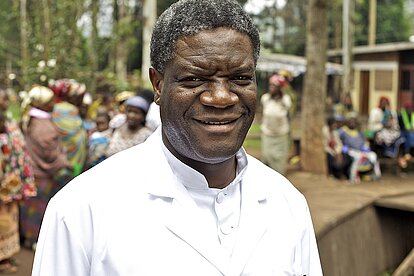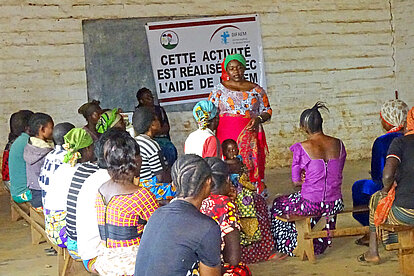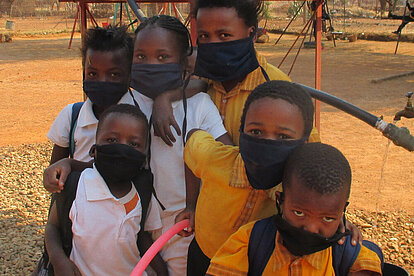Women's Health & Rights
For sexual and reproductive health and for the right to self-determination

Worldwide, more than 280,000 women die each year as a result of pregnancy and childbirth. The majority of these deaths occur in poor countries. Millions of other women suffer health damage as a result of complications during childbirth. The reasons are often inadequate medical care and a lack of health workers, such as midwives, doctors and nurses. There is also a lack of knowledge about safe and effective methods of family planning.
DIFÄM supports the education and training of health professionals such as obstetricians to ensure safe and high-quality care in pregnancy and childbirth. At the same time, we are involved in programmes on food security, education and holistic health care, including special health services for cancer prevention and specific ailments. To complete our range of services, we raise awareness on gender issues, family planning and the empowerment of girls and women, and we combat sexualised violence.
Pre-conditions for a safe birth
Good pre-conditions for a safe birth do not only start with pregnancy. They begin in the earliest childhood of girls. Nutrition plays an important role here, but also the question of what role women and girls have in their families and society.
Every girl and every woman has the same dignity and the same rights as boys and men. It is important that children and adolescents learn about the physical issues and changes during puberty and learn to understand and accept their own bodies. Likewise, the dignity of others and mutual respect must be the focus. Communication about sexuality and access to contraceptives is essential so that girls and women can determine the time of pregnancy themselves and take responsibility for their own life and family planning.
DIFÄM supports its project partners in their efforts to promote family planning in order to ensure a better quality of life for girls and women. To this end, it is very important that every pregnancy and birth is expertly attended to by trained personnel in order to recognise complications at an early stage and to be able to take countermeasures - either in hospital, or at home by well-trained village midwives.







